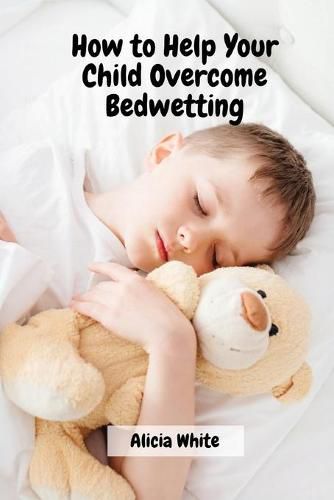Readings Newsletter
Become a Readings Member to make your shopping experience even easier.
Sign in or sign up for free!
You’re not far away from qualifying for FREE standard shipping within Australia
You’ve qualified for FREE standard shipping within Australia
The cart is loading…






This title is printed to order. This book may have been self-published. If so, we cannot guarantee the quality of the content. In the main most books will have gone through the editing process however some may not. We therefore suggest that you be aware of this before ordering this book. If in doubt check either the author or publisher’s details as we are unable to accept any returns unless they are faulty. Please contact us if you have any questions.
More than four million children over the age of five wet the bed.
For most, time will solve the problem - eventually.
But how long will eventually be, and at what cost to parents’ frayed nerves or to the child’s self-esteem?
Bedwetting is an involuntary launch of urine in the course of sleep.
Bedwetting is regarded a trouble if the baby is over age 7 and continues to moist the bed two or greater instances a week for three months in a row.
Bedwetting can be handled by means of altering the child’s conduct or with a number of medications.
Bed-wetting - additionally referred to as dead night incontinence or nocturnal enuresis - is involuntary urination whilst asleep after the age at which staying dry at night time can be fairly expected.
Soggy sheets and pajamas - and an embarrassed infant - are a acquainted scene in many homes.
But do not despair.
Bed-wetting is not a signal of rest room education long past bad. It’s regularly simply a ordinary phase of a kid’s development.
Generally, bed-wetting earlier than age 7 isn’t always a concern.
At this age, your toddler might also nevertheless be creating midnight bladder control.
If bed-wetting continues, deal with the trouble with endurance and understanding.
Lifestyle changes, bladder training, moisture alarms and occasionally medicinal drug might also assist limit bed-wetting.
$9.00 standard shipping within Australia
FREE standard shipping within Australia for orders over $100.00
Express & International shipping calculated at checkout
This title is printed to order. This book may have been self-published. If so, we cannot guarantee the quality of the content. In the main most books will have gone through the editing process however some may not. We therefore suggest that you be aware of this before ordering this book. If in doubt check either the author or publisher’s details as we are unable to accept any returns unless they are faulty. Please contact us if you have any questions.
More than four million children over the age of five wet the bed.
For most, time will solve the problem - eventually.
But how long will eventually be, and at what cost to parents’ frayed nerves or to the child’s self-esteem?
Bedwetting is an involuntary launch of urine in the course of sleep.
Bedwetting is regarded a trouble if the baby is over age 7 and continues to moist the bed two or greater instances a week for three months in a row.
Bedwetting can be handled by means of altering the child’s conduct or with a number of medications.
Bed-wetting - additionally referred to as dead night incontinence or nocturnal enuresis - is involuntary urination whilst asleep after the age at which staying dry at night time can be fairly expected.
Soggy sheets and pajamas - and an embarrassed infant - are a acquainted scene in many homes.
But do not despair.
Bed-wetting is not a signal of rest room education long past bad. It’s regularly simply a ordinary phase of a kid’s development.
Generally, bed-wetting earlier than age 7 isn’t always a concern.
At this age, your toddler might also nevertheless be creating midnight bladder control.
If bed-wetting continues, deal with the trouble with endurance and understanding.
Lifestyle changes, bladder training, moisture alarms and occasionally medicinal drug might also assist limit bed-wetting.